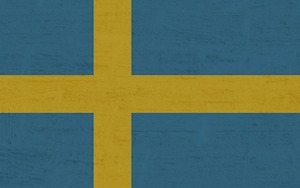The Swedish Gambling Authority has met with two industry organisations to discuss ways of tackling the illegal market.

Spelinspektionen held a meeting with BOS and SPER, presenting current regulations and an overview of the efforts made by the regulator to counter the black market.
Discussions and proposals for improvements and streamlining were heard, Spelinspektionen said.
Spelinspektionen director general Camilla Rosenberg said: “The Swedish Gambling Inspectorate has a number of new tools at its disposal to shut down illegal gambling in Sweden.
“Despite this, there are further opportunities for efficiency in the work and we welcome, as always, the industry's input in an ongoing dialogue on a very important issue. Everything to ensure a healthy and safe Swedish gaming market with high consumer protection.”
BOS secretary general Gustaf Hoffstedt added: “The gambling industry and the Swedish Gambling Inspectorate have a common interest in discouraging unlicensed gambling from Sweden. If we are to succeed in this, we cannot each sit in our own chamber, but then we must gather our forces. A day like this definitely contributes to that.”
SPER CEO Maria Wennerberg Sedigh said cooperation between the relevant authorities is “necessary for the licensing system to function satisfactorily.”
Sweden debate over tax hike proposals
Debate has grown in recent weeks over the black market in Sweden in relation to government proposals to raise the betting tax rate to 22 per cent from 18 per cent from July next year.
Spelinspektionen last week insisted that while it sees “certain difficulties” in “assessing the potential consequences” of the change, it had “no substantive objections” to the increase.
However, BOS’ Hoffstedt said the unlicensed and illegal gaming market in Sweden would “gain market share” under the proposals.
He also tackled what the BOS claims is a disparity in the estimations of the size of the Swedish illegal market between the trade body and the Swedish government, insisting there is a “serious situation” brewing for the licensed market if the tax rate increases.

